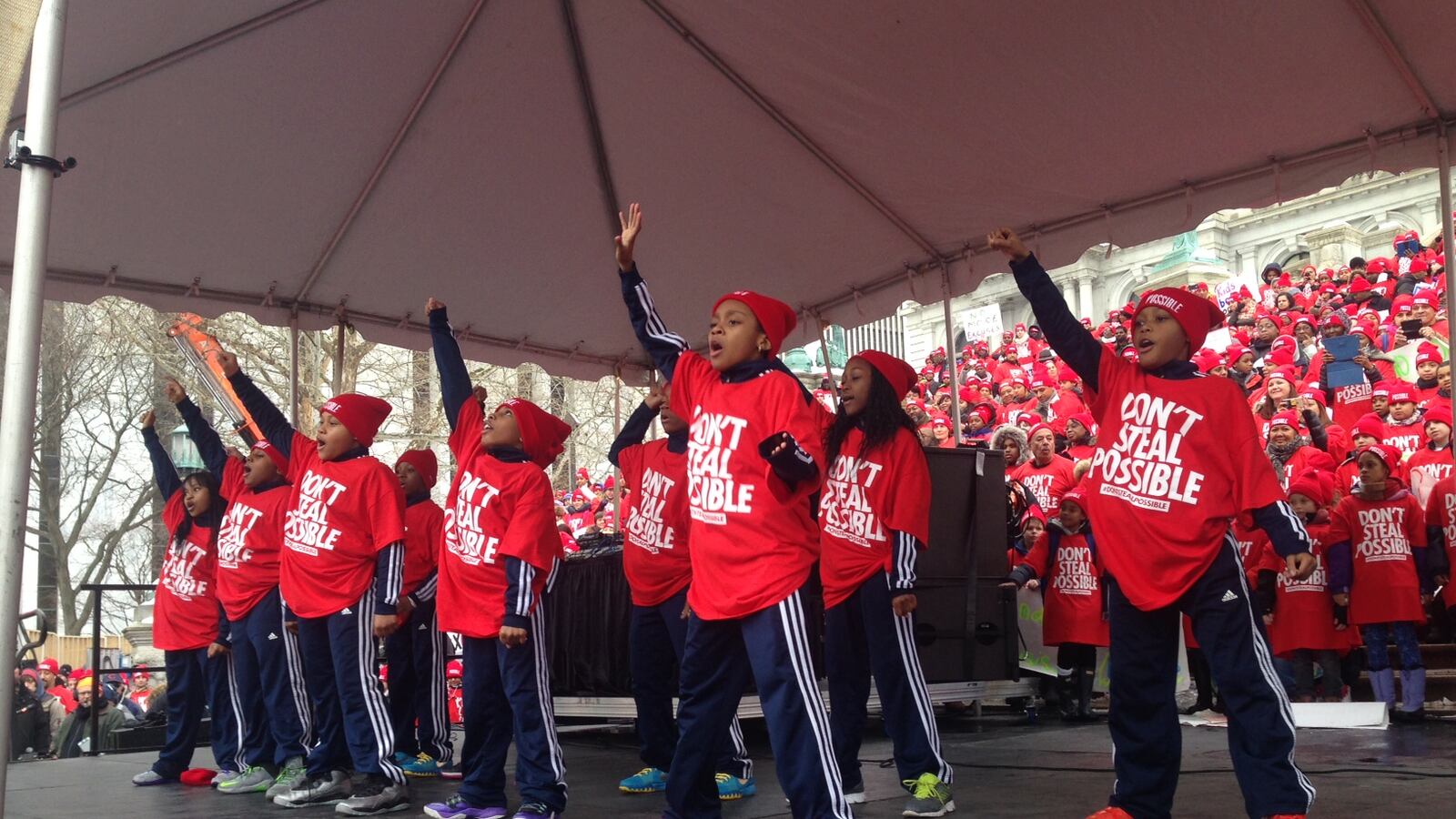With few explosive issues on the horizon and a leading advocacy group in tatters, supporters of charter schools nevertheless gathered in Albany on Tuesday to drum up political support that they hope will result in more funding.
Though some top legislative leaders were not present, nearly 1,000 parents, students and educators continued their annual tradition of descending on Albany to keep charters in the legislative spotlight, according to the event’s organizers.
In some ways, charters are in a secure space because the sector isn’t fighting potentially harmful legislation or pushing for a controversial law that provides financial help for charter schools moving into private space. And with many lawmakers and Gov. Andrew Cuomo laser-focused on fighting Washington, D.C., there is less energy in general this year for education policy.
Yet the relative quiet this year also means that, so far, no serious threats to charter schools have been proposed by lawmakers, said Andrea Rogers, the New York State Director for the Northeast Charter Schools Network, which co-hosted the event with the New York City Charter School Center.
“I think that the charter community generally responds when it needs to if it’s under attack,” Rogers said.
The annual advocacy day is typically a more low-key event than the large-scale rallies drawing thousands of teachers, parents and students, supported by Families for Excellent Schools, an advocacy organization that announced its abrupt closure on Monday. But both have drawn top politicians and policy leaders in the past, including State Education Commissioner MaryEllen Elia and Cuomo.
This year top lawmakers said they missed because of scheduling conflicts. Senate Majority Leader John Flanagan and Independent Democratic Conference Leader Senator Jeff Klein were on the agenda to attend, according to the event’s materials, but did not make it.
“Senator Flanagan regrets that he couldn’t attend and speak to the success charter schools have had in ensuring every child in New York receives a first-class education,” said Flanagan’s spokesman, Scott Reif, in an email. “He was on the Senate floor at the time, participating in our annual Fort Drum ceremony, which ran late.”
A Klein spokesperson said the Senator had a scheduling conflict but met with charter leaders later in the day.
Charter school advocates have managed to accomplish several funding and policy goals in the last few years. After a fight that dragged out past the state’s budget deadline, charter schools, with the help of Senate Republicans, last year saw a funding boost and the promise of future increases. The year before, a last-minute deal doubled the funding increase originally proposed by the governor over the objection of the teachers union. Before that, charter supporters won the ability to open more schools and a law that allows them to receive financial help if they open schools in private space.
Still, there are some issues charter advocates say remain unsettled. Despite receiving extra cash in recent years, advocates argue they still receive less public per pupil funding than district schools — and are hoping to change that. Additionally, they want to eliminate the charter school cap, which allows an additional 45 charter schools to open in New York City and 102 charters left outside of the city, according to the latest numbers posted by the New York City Charter School Center.
“Regardless of what the headlines say about charters this session, the truth is that about 1,000 parents, educators, and students — from Brooklyn to Buffalo — trekked up to Albany on a very cold Tuesday in February because they’re tired of being underfunded compared to their district school peers,” said Mitch Schwartz, a spokesman for the charter center.

